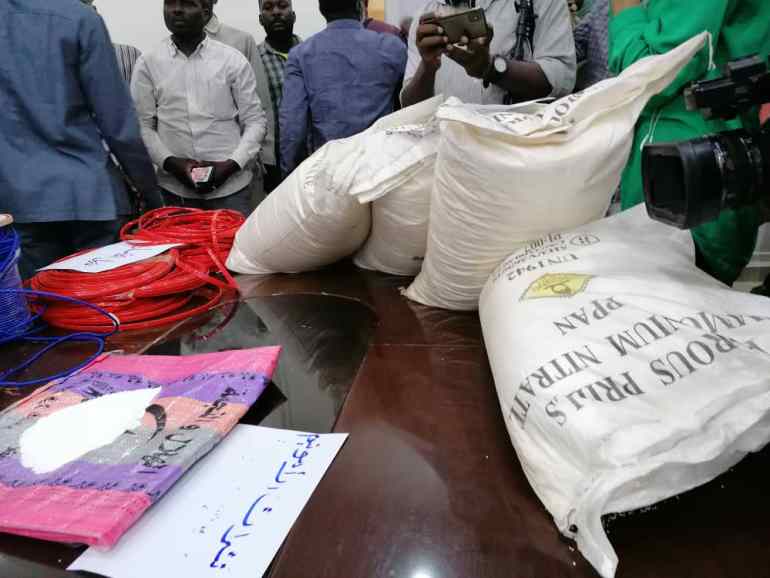The Sudanese Public Prosecution stressed the linkage of explosives seized today, Wednesday, to terrorist activities, inferred to a set of evidence, the most important of which is the magnitude and strength of these explosives and the connection of some elements involved with cells and previous terrorist operations.
But some believe it was intended only for mining activities.
According to Prosecutor Ahmed Suleiman, who was part of the team that supervised the seizure, the seized quantity reached 850 cans of dynamite.
Suleiman told Al-Jazeera Net that every centimeter of these explosives is sufficient to detonate 7 square kilometers, while explosives are legally used in road construction, and small quantities of them may be used to break up rock that impedes the mining process.
Suleiman considered that the talk about the seizure being linked to the excavation work is an attempt to question the supporters of the former regime, and said that there is information that will be revealed after the investigation with those involved, and that the explosives are linked to terrorist activities.
The Public Prosecution says it seized 850 packages of dynamite (Al-Jazeera)
Terrorist activity
The prosecutor stated that there is a relationship between the seizure announced by the Attorney General and the attempt to assassinate Prime Minister Abdullah Hamdok at the bottom of the Koper Bridge from the Khartoum North side last February.
He added that the elements that were arrested in connection with terrorist cells had been arrested in both the Arkawit neighborhood of Khartoum and the eastern Nile suburbs, in earlier times.
Following an accidental explosion in an apartment in the Arkawit neighborhood in February 2017, the police managed to seize a cell active in the manufacture of explosives, whose members are of Arab nationalities, and led by an Egyptian who was injured in the explosion.
And last February, the mabahith arrested a cell of 7 Egyptians in the eastern Nile suburb, east of Khartoum, and the police said at the time that they were pursuing other wanted suspects and belonging to the cell.
According to the confessions of the East Nile cell, they entered Sudan in 2014 and 2015 after the dispersal of the Rab'a sit-in, while the authorities kept away from revealing the identity and nationalities of the Arquette apartment cell in 2017.
Part of the explosive materials presented by the authorities (Al-Jazeera Net)
Mining activity
On the other hand, a security source confirmed to Al-Jazeera Net that the seizures and suspects announced today are related to gold mining activities, and have no connection with any terrorist activity.
Native gold mining is spread in dozens of sites in most of Sudan's 18 states, where thousands are active in exploration operations.
Earlier, the Governor of the Red Sea, Abdullah Shanqari, told Al-Jazeera Net that raids were carried out by the security authorities last August, following bloody tribal confrontations between Bani Amer and Nuba in Port Sudan, which resulted in the seizure of explosives used in mining by the parties to the conflict.
The Sudanese authorities said today that they had seized high-risk explosives in the possession of 41 defendants, which were enough to blow up the Sudanese capital, and threaten the security of the country and neighboring countries.
She explained that a close follow-up from the intelligence services since last month led to the arrest of the accused, and suggested that some explosive materials had been leaked from official authorities.
The Sudanese authorities say that the explosives trafficking involved in miners is fertile ground for any groups with terrorist targets.

